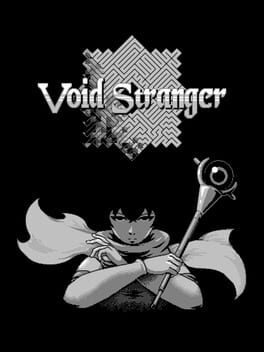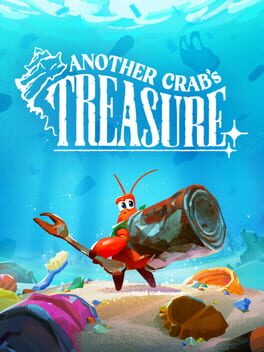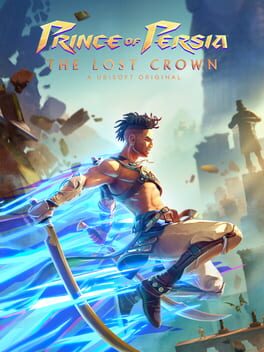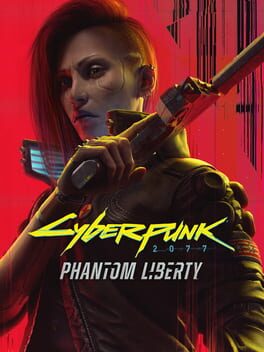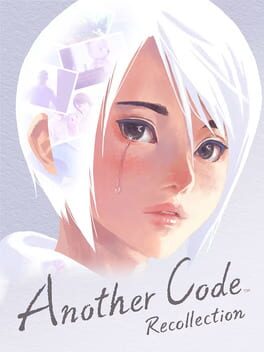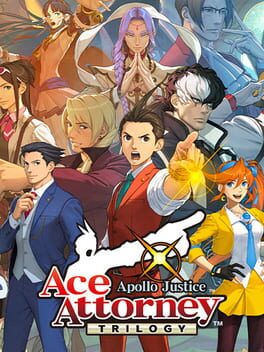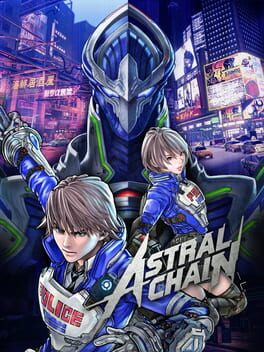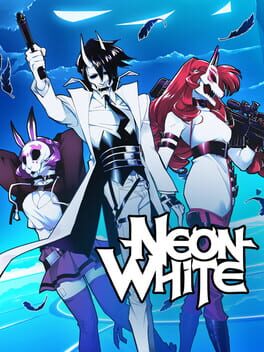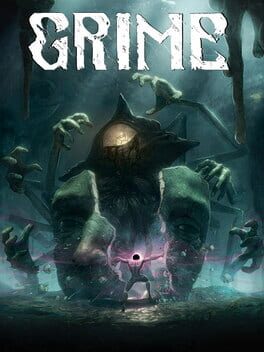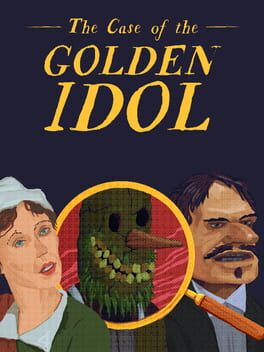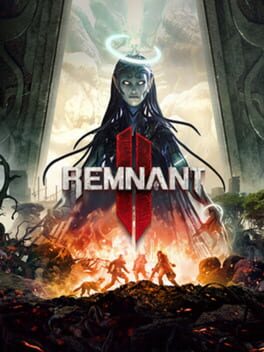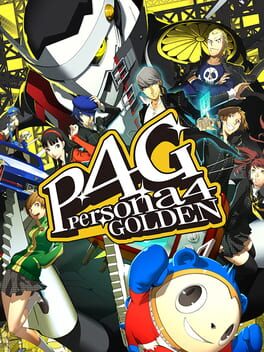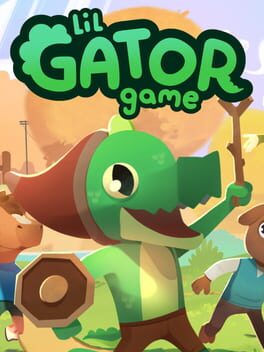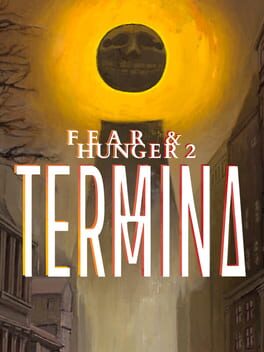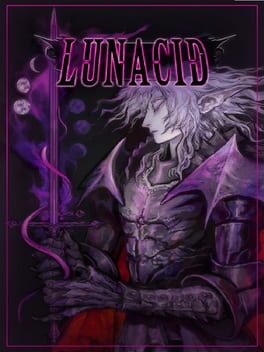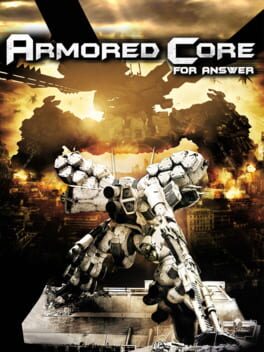Ruslancher
68 reviews liked by Ruslancher
Animal Well
2024
Rain World; Fez; Environmental Station Alpha. If your reaction is "hell yeah" to any of these following games, then you'll love Animal Well.
Decently sized metroidpuzzlevania that rewards exploration and incentivizes the player to tinker and break the game whenever possible. Great movement mechanics, inventive gadgets, fantastic sound design, excellent puzzles and a well-thought map and level design. Minimal handholding is part of the intended experience, but the game does an excellent job of subconsciously guiding us toward breakthroughs and "A-ha!" moments.
Some players will watch the credits roll and feel satisfied while others will spend many more hours unearthing every little secret in the game - and boy there's plenty of them. I feel like I hit a barrier at 52 eggs, and that's perfectly OK.
Decently sized metroidpuzzlevania that rewards exploration and incentivizes the player to tinker and break the game whenever possible. Great movement mechanics, inventive gadgets, fantastic sound design, excellent puzzles and a well-thought map and level design. Minimal handholding is part of the intended experience, but the game does an excellent job of subconsciously guiding us toward breakthroughs and "A-ha!" moments.
Some players will watch the credits roll and feel satisfied while others will spend many more hours unearthing every little secret in the game - and boy there's plenty of them. I feel like I hit a barrier at 52 eggs, and that's perfectly OK.
Animal Well
2024
[ Reviewing this upon rolling credits after 5 hours - there's however still more secrets to find. ]
The first comparison that I drew after finishing Animal Well is to 2022's Tunic. Both are old-school, exploration focused adventures that have you constantly on a mental edge trying to figure out the mysteries of their insane worlds.
Though its striking artstyle might be the force of initial attraction, the world and puzzle design is the reason to stay. The world is built to not waste your time, and none of the puzzles require La Mulana-type divination making the entire journey a very effective process of trial and error.
The tools given to you (especially the second one) are incredibly versatile and can be used in a number of ways. There's more than one occasion where I used a combination of the items provided and some strange platforming maneuvre to find an alternate solution for getting to a location. That process doesn't feel like cheating, it feels like it's part of the game, part of the exploration.
Trying to review this game is quite difficult, as so much of what makes it special is its design, atmosphere and moment-to-moment design. It's my favorite (Balatro aside) game of the year so far.
8.5/10
The first comparison that I drew after finishing Animal Well is to 2022's Tunic. Both are old-school, exploration focused adventures that have you constantly on a mental edge trying to figure out the mysteries of their insane worlds.
Though its striking artstyle might be the force of initial attraction, the world and puzzle design is the reason to stay. The world is built to not waste your time, and none of the puzzles require La Mulana-type divination making the entire journey a very effective process of trial and error.
The tools given to you (especially the second one) are incredibly versatile and can be used in a number of ways. There's more than one occasion where I used a combination of the items provided and some strange platforming maneuvre to find an alternate solution for getting to a location. That process doesn't feel like cheating, it feels like it's part of the game, part of the exploration.
Trying to review this game is quite difficult, as so much of what makes it special is its design, atmosphere and moment-to-moment design. It's my favorite (Balatro aside) game of the year so far.
8.5/10
Void Stranger
2023
Playing this game is a process of gradually tuning your mind to its frequency like a radio station, learning the languages it speaks as well as the gaps in what it says, until it feels like your whole body is resonating in harmony with it. It's a constant dance between fascinations: as soon as your mind is wholly absorbed with the first-order tile puzzles, the game zooms out and gets you thinking about the world it takes place in. The moment you start to really dig into the lore, it crashes back in close and reminds you that it's really about the deeply personal love and loss of each of the characters. And to see more of those characters, of course, you must do more sokoban.
It's hard to talk in detail about the game without spoilers, but I'll say this: I filled four pages with notes about this game, spilling over into a spreadsheet, a screenshot folder, and a large collection of video recordings. The expertise with which its layered puzzles are assembled is extraordinary, hitting a perfect difficulty point where you feel like a genius for each solve but (almost) everything feels like it's using the same design language that you can become fluent with. It stands with Riven as one of the best puzzle games I've ever played.
But that's not even the thing I'll remember most about Void Stranger. What will stay with me long after I forget the trick to B213 or the best way to route bulls is the love the characters hold for one another and the fucked up beautiful lengths they'll go to enact it. In the end, the heart of the game is summed up in the words uttered by Eus's statue... which I'll let you discover for yourself.
It's hard to talk in detail about the game without spoilers, but I'll say this: I filled four pages with notes about this game, spilling over into a spreadsheet, a screenshot folder, and a large collection of video recordings. The expertise with which its layered puzzles are assembled is extraordinary, hitting a perfect difficulty point where you feel like a genius for each solve but (almost) everything feels like it's using the same design language that you can become fluent with. It stands with Riven as one of the best puzzle games I've ever played.
But that's not even the thing I'll remember most about Void Stranger. What will stay with me long after I forget the trick to B213 or the best way to route bulls is the love the characters hold for one another and the fucked up beautiful lengths they'll go to enact it. In the end, the heart of the game is summed up in the words uttered by Eus's statue... which I'll let you discover for yourself.
Balatro
2024
Man, am I a sucker for snappy and responsive UI. Rarely is that pulled off well in the first place... but add in colourful and flashy bits to the mix and it is STILL quick? That's a job well done.
This is probably the second best take on roguelike deck builders so far (though it could also be Cobalt Core). There are plenty of ways to continue to challenge yourself as you "ascend" through the difficulty levels. After beating the game once with every deck and then beating gold rank (or whatever the highest one is) on one deck, I was content. I put the game down after about 60 hours of play or so.
I think something that became apparent after I understood the game well enough was that this game feels a bit too luck based to be a truly fantastic game like Slay the Spire. In StS, I always feel in control of my destiny. Here, it feels as though I can get screwed super early over and over. Not only that, but late in to a run you can just get stonewalled suddenly. The difficulty curve is very strange.
The first few antes are hard unless you get great synergy immediately. If you can get past ante 3 you're likely going to easily get to ante 7 or 8. But then.... there's a good chance you're gonna lose. It just kinda feels strange in that way.
Outside of that, I loved my time with this game! It's very satisfying learning how things work together and how to position your cards.
This is probably the second best take on roguelike deck builders so far (though it could also be Cobalt Core). There are plenty of ways to continue to challenge yourself as you "ascend" through the difficulty levels. After beating the game once with every deck and then beating gold rank (or whatever the highest one is) on one deck, I was content. I put the game down after about 60 hours of play or so.
I think something that became apparent after I understood the game well enough was that this game feels a bit too luck based to be a truly fantastic game like Slay the Spire. In StS, I always feel in control of my destiny. Here, it feels as though I can get screwed super early over and over. Not only that, but late in to a run you can just get stonewalled suddenly. The difficulty curve is very strange.
The first few antes are hard unless you get great synergy immediately. If you can get past ante 3 you're likely going to easily get to ante 7 or 8. But then.... there's a good chance you're gonna lose. It just kinda feels strange in that way.
Outside of that, I loved my time with this game! It's very satisfying learning how things work together and how to position your cards.
Balatro
2024
Great news! You too can develop a debilitating gambling addiction for only $15!
I don't think you could create a more addicting game if you tried. The pick-up-and-play element of this roguelite deckbuilder is so strong since it's based on poker, a game invented in the goddamn 1700s. For those of you keeping score at home, that's before we figured out how to synthesize cocaine.
And yet somehow, despite its simple origins, Balatro is just packed full of content. The game keeps throwing new shit at me left and right and I haven't even cleared the third stake yet. The satisfaction of making an absolutely busted deck setup is insanely gratifying, like what do you MEAN that I can score three million points by playing a single crumpled holofoil ace of spades with some red wax on it while the sound design and screen shake activate every neuron in my monkey brain. Is it legal to do that. I don't think it should be. This game needs like a Prop 65 warning or something.
Probably gonna continue playing this one until it stops having a Tetris effect (no not that one) like impact on my dreams. I woke up in a cold sweat last night because I was dealt some clubs when I needed hearts. That sounds like a metaphor for something. Hopefully Mercury isn't in retrograde or I might be in trouble. Maybe I should consult a psychic, or at least one of my goth friends who can read tarot and is a little too obsessed with astrology. Or perhaps I'm just a fool. I fold, cash me out dealer before I royal flush my life away.
Anyway good game. Don't even think about checking it out.
* Played perfectly on Ubuntu 20.04.6 via Proton 7.0-6.
I don't think you could create a more addicting game if you tried. The pick-up-and-play element of this roguelite deckbuilder is so strong since it's based on poker, a game invented in the goddamn 1700s. For those of you keeping score at home, that's before we figured out how to synthesize cocaine.
And yet somehow, despite its simple origins, Balatro is just packed full of content. The game keeps throwing new shit at me left and right and I haven't even cleared the third stake yet. The satisfaction of making an absolutely busted deck setup is insanely gratifying, like what do you MEAN that I can score three million points by playing a single crumpled holofoil ace of spades with some red wax on it while the sound design and screen shake activate every neuron in my monkey brain. Is it legal to do that. I don't think it should be. This game needs like a Prop 65 warning or something.
Probably gonna continue playing this one until it stops having a Tetris effect (no not that one) like impact on my dreams. I woke up in a cold sweat last night because I was dealt some clubs when I needed hearts. That sounds like a metaphor for something. Hopefully Mercury isn't in retrograde or I might be in trouble. Maybe I should consult a psychic, or at least one of my goth friends who can read tarot and is a little too obsessed with astrology. Or perhaps I'm just a fool. I fold, cash me out dealer before I royal flush my life away.
Anyway good game. Don't even think about checking it out.
* Played perfectly on Ubuntu 20.04.6 via Proton 7.0-6.
Perfectly captures the feel of a soulslike but adds so much more on top, best of which is the "trash used as treasure" theming and the different shells you can carry. Makes some gutsy decisions like no stamina and a heavy emphasis on platforming, but it pays off big time. Great humor, good story, fun as heck combat. GOTY contender for sure.
I'm probably going to repeat a lot of similar points that Larry Davis brought up in his review, so... what he said.
14 years after The Forgotten Sands, Prince of Persia is finally back, and the folks over at Ubisoft Monpellier understood the assignment: crap up good movement and puzzle solving with dreadful combat and an over-reliance on mobs of spongy enemies.
Parrying and punishing is the bread and butter of Sargon's kit, a rhythm you want to maintain to build meter for more devastating abilities, but when you're just trying to get to your next objective or explore some crypt, constantly getting beaned from all sides by low-level goons that have a bafflingly high HP pool gets really annoying. You might think bosses better leverage this system being that they're one-on-one encounters, but most fall into the same rote strategy of playing defensively until they open themselves up for a cinematic counter.
At least one of these bosses actively punishes dynamic play by spamming teleports and parries when the player behaves aggressively, resulting in a fight that requires you sit Sargon in a corner so the boss will fall into a pattern of throwing out the same three attacks, permitting you to plink away at his health at the end of each sequence. I'm pretty sure this isn't an intentional lesson so much as the AI doesn't know how to deal with you remaining still, but I would describe combat as being bizarrely passive despite how much you're given to work with.
The pendulum does eventually swing in the other direction when you gather up enough ingots to upgrade Sargon's weapons, but enemies never quite keep pace with the player's growth, resulting in a game that's entirely too frustrating in the early half and almost comically easy in the second.
And sure, you might argue that a search-action game is all about making the player feel progressively more empowered as they plumb the depths of whatever hostile labyrinth they're trapped in, but almost all the gains Sargon actually makes are bought and paid for with time crystals. In Super Metroid, Samus slowly gains abilities and expands her inventory through exploration. In Symphony of the Night, Alucard can find a variety of capes, armors, and weapons that allows the player to directly build their character. While The Lost Crown's most secluded areas occasionally house a heart container or equipable charm (most of which are borderline useless), they'll more often dead end with 40 crystals and a piece of paper with a full length Backloggd essay written on it -- I ain't reading that, I don't have time! Growth feels far more tied to the economics of the world and what you can afford than it does exploration. Hell, sometimes you'll even go out of your way to reach a secret alcove and find there's nothing at all.
Before I punch out from my shift at the hot take factory, where I work as a foreman to support my factory wife and my 2.5 factory kids, I will say that Lost Crown is a much more enjoyable experience when you decouple yourself from the typical search-action loop of exploring every nook and cranny and instead focus on the main path. There's some genuinely great platforming sequences and puzzles that make good use of Sargon's traversal abilities, and the layout of Mount Qaf is easy to read and navigate your way through thanks to the game setting objective markers and allowing you to photograph areas of interest for quick reference on the map.
The story has its share of contrivances, especially early on, but I did find myself surprisingly invested by the end of the game, and although most characters can be described as "well-meaning but criminally and suicidally stupid," the concept of Mount Qaf existing within a bubble of fractured space and time is enough to carry the narrative whenever the character writing falls short. I really like the idea that every character and NPC is perceiving time differently, some being displaced by decades whereas others are made to exist within a singular moment for eternity.
Lost Crown doesn't stick the landing for me. It gets a lot about the search-action formula wrong, particularly with character growth and incentivizing exploration off the beaten path. The combat is rough and excessive, and sometimes you'll spend ten minutes throwing yourself to a meat grinder trial-and-erroring your way through pattern memorization all for a pair of pants, but there's still something here. Traversal feels good, the visual design is great, and the core loop is satisfying enough to elevate Lost Crown from being a bad game to being perfectly mediocre, maybe even serviceable. In other words, it's a Prince of Persia game.
Gonna buy a shirt that says "I'd rather be playing Touhou Luna Nights."
14 years after The Forgotten Sands, Prince of Persia is finally back, and the folks over at Ubisoft Monpellier understood the assignment: crap up good movement and puzzle solving with dreadful combat and an over-reliance on mobs of spongy enemies.
Parrying and punishing is the bread and butter of Sargon's kit, a rhythm you want to maintain to build meter for more devastating abilities, but when you're just trying to get to your next objective or explore some crypt, constantly getting beaned from all sides by low-level goons that have a bafflingly high HP pool gets really annoying. You might think bosses better leverage this system being that they're one-on-one encounters, but most fall into the same rote strategy of playing defensively until they open themselves up for a cinematic counter.
At least one of these bosses actively punishes dynamic play by spamming teleports and parries when the player behaves aggressively, resulting in a fight that requires you sit Sargon in a corner so the boss will fall into a pattern of throwing out the same three attacks, permitting you to plink away at his health at the end of each sequence. I'm pretty sure this isn't an intentional lesson so much as the AI doesn't know how to deal with you remaining still, but I would describe combat as being bizarrely passive despite how much you're given to work with.
The pendulum does eventually swing in the other direction when you gather up enough ingots to upgrade Sargon's weapons, but enemies never quite keep pace with the player's growth, resulting in a game that's entirely too frustrating in the early half and almost comically easy in the second.
And sure, you might argue that a search-action game is all about making the player feel progressively more empowered as they plumb the depths of whatever hostile labyrinth they're trapped in, but almost all the gains Sargon actually makes are bought and paid for with time crystals. In Super Metroid, Samus slowly gains abilities and expands her inventory through exploration. In Symphony of the Night, Alucard can find a variety of capes, armors, and weapons that allows the player to directly build their character. While The Lost Crown's most secluded areas occasionally house a heart container or equipable charm (most of which are borderline useless), they'll more often dead end with 40 crystals and a piece of paper with a full length Backloggd essay written on it -- I ain't reading that, I don't have time! Growth feels far more tied to the economics of the world and what you can afford than it does exploration. Hell, sometimes you'll even go out of your way to reach a secret alcove and find there's nothing at all.
Before I punch out from my shift at the hot take factory, where I work as a foreman to support my factory wife and my 2.5 factory kids, I will say that Lost Crown is a much more enjoyable experience when you decouple yourself from the typical search-action loop of exploring every nook and cranny and instead focus on the main path. There's some genuinely great platforming sequences and puzzles that make good use of Sargon's traversal abilities, and the layout of Mount Qaf is easy to read and navigate your way through thanks to the game setting objective markers and allowing you to photograph areas of interest for quick reference on the map.
The story has its share of contrivances, especially early on, but I did find myself surprisingly invested by the end of the game, and although most characters can be described as "well-meaning but criminally and suicidally stupid," the concept of Mount Qaf existing within a bubble of fractured space and time is enough to carry the narrative whenever the character writing falls short. I really like the idea that every character and NPC is perceiving time differently, some being displaced by decades whereas others are made to exist within a singular moment for eternity.
Lost Crown doesn't stick the landing for me. It gets a lot about the search-action formula wrong, particularly with character growth and incentivizing exploration off the beaten path. The combat is rough and excessive, and sometimes you'll spend ten minutes throwing yourself to a meat grinder trial-and-erroring your way through pattern memorization all for a pair of pants, but there's still something here. Traversal feels good, the visual design is great, and the core loop is satisfying enough to elevate Lost Crown from being a bad game to being perfectly mediocre, maybe even serviceable. In other words, it's a Prince of Persia game.
Gonna buy a shirt that says "I'd rather be playing Touhou Luna Nights."
Super Metroid
1994
outside of the (understandably) on-the-nose coloured doorways nearly every instance of environmental interaction is rich and tactile. thirty years later it's still a wonder to grope and paw at every (Possibly Maybe) malleable surface and leverage every new upgrade toward greater structural manipulation and command
in ensuring how and when are given as much significance as what and where it forms a relationship between actor and environment that bears uncommonly personal patterns and markings as you learn to use Your body as an implement to interface with the world. sidepaths and back alleys that carve Under - Over - Through reshape the familiar thru layered mechanical discovery and shift the internal v external dynamic in turn; mastery of the self begetting exponential mastery of the other
a fitting problem then that the biocircuitry, plunging intestinal mazes, and gloomy dark ambient synthesis quickly become less something to endure so much as to dominate; the dissonance for show, and the brutality nakedly glamorous and one sided. so much of it exists in service to the pursuit of (Your) power, kneeling with its neck outstretched waiting to feel bones shatter for Your gratification. sure, I feel obscenely powerful, but I'd rather feel anything else
in ensuring how and when are given as much significance as what and where it forms a relationship between actor and environment that bears uncommonly personal patterns and markings as you learn to use Your body as an implement to interface with the world. sidepaths and back alleys that carve Under - Over - Through reshape the familiar thru layered mechanical discovery and shift the internal v external dynamic in turn; mastery of the self begetting exponential mastery of the other
a fitting problem then that the biocircuitry, plunging intestinal mazes, and gloomy dark ambient synthesis quickly become less something to endure so much as to dominate; the dissonance for show, and the brutality nakedly glamorous and one sided. so much of it exists in service to the pursuit of (Your) power, kneeling with its neck outstretched waiting to feel bones shatter for Your gratification. sure, I feel obscenely powerful, but I'd rather feel anything else
Citizen Sleeper
2022
"To be human and to be humane are two very different things."-Some 15 year old on Tiktok, probably.
Before I start this review, I'd like to give a massive thanks to @duhnuhnuh for gifting me a copy of this game. They have a steam giveaway list on their profile, so check that out!
Citizen sleeper is a game about obsolescence. This is made clear when you start the game, your robotic body already failing due to built in corporate dependency, washed up on an old space station that frankly, kinda sucks. A story about people who've either achieved their goals or become complacent. It's a cyberpunk setting, so implants, corrupt mercs, and lower city crime gangs abound here, but all with such stellar execution.
Once you finish the tutorial, you're pretty much free to explore the city at your leisure. You talk to people and take on odd jobs to get by and expand your scope of the city, in a day to day system similar to something like Animal Crossing and Stardew Valley, only your body can shut down if you don't take enough drugs. Standard stuff.
But the sandbox element is a great draw. It's not super limiting and anything that does have a deadline is pretty generous, the only limit is needing a specific dice which rng could just not give you (Feng bro I'm so sorry) The implant system is generally a genius mechanic, beautifully blending gameplay and narrative together. Do you use another for more desperate attempts at the dice, or do you wait until your robotic body is barely functional? Choice is yours.
But above all that, Citizen sleeper is a game about people. People stuck in the same situation as you just trying to get by. People like Tala and Emphis just trying to make the best of their situation, people like Sabine and Feng trying to change the system entirely, and people like Lem just working for themselves. I straight up cannot think of a bad character in this game.
The next thing I gotta praise is the atmosphere in general. Even at the start when you're trying to get your bearings, the world's beautiful setting and sound design keep you invested, as well as the general mystery of what's the next thing out there. If I fill this meter, what do I get? What, or who, is there for me? I gotta buy access to the next part of the ship? Sure thing, who's there? It's just such a brilliant setting.
If there's one thing I think should be looked into for the next game, I think more variance in sprites should be nice. Character sprites only change after a dramatic turning point in their plotlines, so just a few different emotion sprites would add greatly to the immersion.
So overall, it's just a masterpiece of an experience that left me engaged throughout, and a game you just need to play. I only got one of eight possible endings, so I'll definitely be returning at some point.
Before I start this review, I'd like to give a massive thanks to @duhnuhnuh for gifting me a copy of this game. They have a steam giveaway list on their profile, so check that out!
Citizen sleeper is a game about obsolescence. This is made clear when you start the game, your robotic body already failing due to built in corporate dependency, washed up on an old space station that frankly, kinda sucks. A story about people who've either achieved their goals or become complacent. It's a cyberpunk setting, so implants, corrupt mercs, and lower city crime gangs abound here, but all with such stellar execution.
Once you finish the tutorial, you're pretty much free to explore the city at your leisure. You talk to people and take on odd jobs to get by and expand your scope of the city, in a day to day system similar to something like Animal Crossing and Stardew Valley, only your body can shut down if you don't take enough drugs. Standard stuff.
But the sandbox element is a great draw. It's not super limiting and anything that does have a deadline is pretty generous, the only limit is needing a specific dice which rng could just not give you (Feng bro I'm so sorry) The implant system is generally a genius mechanic, beautifully blending gameplay and narrative together. Do you use another for more desperate attempts at the dice, or do you wait until your robotic body is barely functional? Choice is yours.
But above all that, Citizen sleeper is a game about people. People stuck in the same situation as you just trying to get by. People like Tala and Emphis just trying to make the best of their situation, people like Sabine and Feng trying to change the system entirely, and people like Lem just working for themselves. I straight up cannot think of a bad character in this game.
The next thing I gotta praise is the atmosphere in general. Even at the start when you're trying to get your bearings, the world's beautiful setting and sound design keep you invested, as well as the general mystery of what's the next thing out there. If I fill this meter, what do I get? What, or who, is there for me? I gotta buy access to the next part of the ship? Sure thing, who's there? It's just such a brilliant setting.
If there's one thing I think should be looked into for the next game, I think more variance in sprites should be nice. Character sprites only change after a dramatic turning point in their plotlines, so just a few different emotion sprites would add greatly to the immersion.
So overall, it's just a masterpiece of an experience that left me engaged throughout, and a game you just need to play. I only got one of eight possible endings, so I'll definitely be returning at some point.
Citizen Sleeper
2022
Sights & Sounds
- Excellent character designs. Everyone you encounter is really visually interesting and unique
- Nice, mostly chill electronic music throughout
Story & Vibes
- The story is so good. I found myself following every sidequest I could find just to keep learning more about the world
- I completed the Flux DLC and enjoyed it as well
- There are many endings to the game, and most of them are pretty great. One thing to keep in mind is that you should take every opportunity to see endings, even if they would appear to end your playthrough early. You can always continue from the decision point once you're bounced back to the menu
- The mood is a desperate one. Your body is continually degrading, so a sense of urgency hangs over the early game. By the end, though, you'll be so resource rich that it won't really matter
Playability & Replayability
- The game is largely played by dispensing your dice into actions every day. These may be jobs to earn money or supplies, activities to recover health and energy, or story-related tasks
- Your stat tree can help you with these rolls as well as providing you with other passive perks
- Other than that, it's mostly kicking back and enjoying the story and visuals
- I'll definitely be returning to get the endings I missed as well as playing through the upcoming DLCs
Overall Impressions & Performance
- Not a very graphically intense game, but it ran flawlessly and without bugs
Final Verdict
- 9/10. If you're a fan of a good sci-fi story and either enjoy or don't mind some light resource management, I'd recommend this game regardless of price
- Excellent character designs. Everyone you encounter is really visually interesting and unique
- Nice, mostly chill electronic music throughout
Story & Vibes
- The story is so good. I found myself following every sidequest I could find just to keep learning more about the world
- I completed the Flux DLC and enjoyed it as well
- There are many endings to the game, and most of them are pretty great. One thing to keep in mind is that you should take every opportunity to see endings, even if they would appear to end your playthrough early. You can always continue from the decision point once you're bounced back to the menu
- The mood is a desperate one. Your body is continually degrading, so a sense of urgency hangs over the early game. By the end, though, you'll be so resource rich that it won't really matter
Playability & Replayability
- The game is largely played by dispensing your dice into actions every day. These may be jobs to earn money or supplies, activities to recover health and energy, or story-related tasks
- Your stat tree can help you with these rolls as well as providing you with other passive perks
- Other than that, it's mostly kicking back and enjoying the story and visuals
- I'll definitely be returning to get the endings I missed as well as playing through the upcoming DLCs
Overall Impressions & Performance
- Not a very graphically intense game, but it ran flawlessly and without bugs
Final Verdict
- 9/10. If you're a fan of a good sci-fi story and either enjoy or don't mind some light resource management, I'd recommend this game regardless of price
5 lists liked by Ruslancher
by HaterToxicVladik |
10 Games
by darklink20001 |
45 Games
by Altcore |
10 Games
by vantaus |
10 Games

